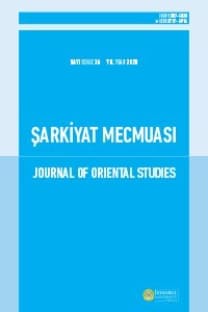Okçuluk Risalesi
Tarihte ok ve yayın ilk olarak hangi coğrafyada kullanıldığı bilinmemektedir. Bununla birlikte okçuluk dünyanın birçok yerinde eski devirlerden itibaren uygulanmıştır. Her coğrafyanın kendine has olan okçuluk tarzı tarihin derinliklerinden gelmektedir. Yüzyıllar boyu oluşan bu kültürü gelecek kuşaklara aktarmak için eserler yazılmıştır. Okçuluk risaleleri, geçmişte okçuluğun nasıl icra edildiği, püf noktalarının neler olduğu, ok ve yayın hangi maddelerden üretildiği, okçunun karakterinin nasıl olması gerektiği gibi muhtelif konularda gelecek kuşaklara bilgi aktarımı yapmak için kaleme alınmış eserlerdir. Bu çeviride İrec Afşâr tarafından neşredilen bir okçuluk risalesi, Farsçadan Türkçeye tercüme edilmiştir. Hint-Pers kültür sahasına ait bu eserin okçuluk, silâh ve kültür tarihi için mühim bilgilere sahip olduğu düşünülmektedir.
Resāle-Ye Kamān-Dārī
In history, it is not known in which geography the bow and the arrow were used for the first of all. However, archery has been practiced in many parts of the world since ancient times. The unique archery style of each geography comes from the depths of history. Booklets were written to transfer this culture, which has been formed over the centuries, to the next generations. Archery booklets are works, that are written to transfer information to the next generations on various subjects such as how archery was performed in the past, what the tricks are in archery, what materials the arrow and the bow are made of, and how the character of the archer should be. In this translation, an archery booklet, that was published by Iraj Afshār, has been translated from Persian to Turkish. This booklet, which belongs to the Indo-Persian cultural area, is thought to have important information for the archery, arms and cultural history.
___
- [Fahr-i Mudebbîr, Âdâbu’l-Harb ve’ş-Şecâ’a, neşr. Ahmed Suheylî-yi Hânsârî, Tahran 1346/1967.
- Hinz, Walther, İslâm’da Ölçü Sistemleri, Türkçe terc. Acar Sevim, İstanbul 1990.
- Kallek, Cengiz, “Men”, DİA, XXIX, (2004), s. 105-107.
- Karpowicz, Adam, Osmanlı Türk Yayları İmali ve Tasarım, Türkçe terc. Mehmet Yılmaz Akbulut, İstanbul 2018.
- Şucâ’u’d-dîn Dorûd-bâşî-yi Beyhakî, “Câmi’u’l-Hidâyet fî ‘İlmi’r-Rimâyet”, neşr. Muhammed Takî Dânişpejûh, Ferheng-i İrân-zemîn, XI, (1342/1963), s. 229-280; Okçuluk Sanatı, Türkçe terc. İbrahim Duman, İstanbul 2020.
- ISSN: 1307-5020
- Yayın Aralığı: 2
- Başlangıç: 1956
- Yayıncı: İstanbul Üniversitesi Edebiyat Fakültesi Şarkiyat Araştırma Merkezi
